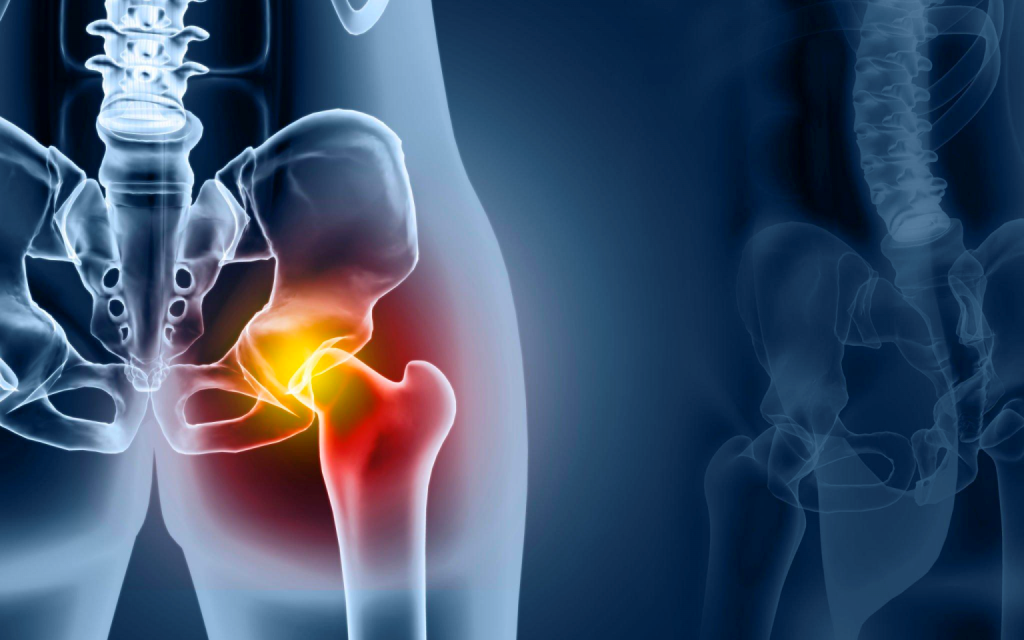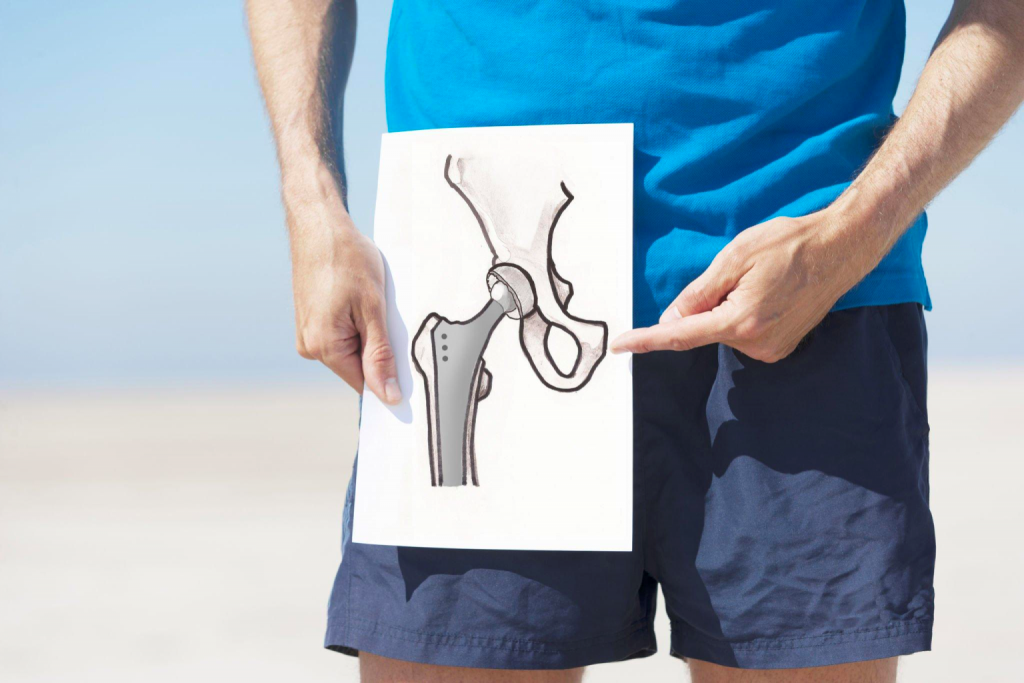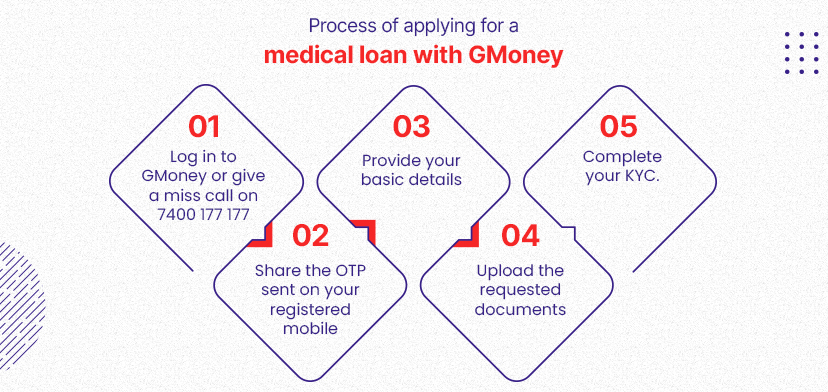Home » Best total hip replacement surgery in New Delhi – Lasts for decades

If you’re considering undergoing hip replacement surgery, you may have many questions and concerns. It can be frustrating to deal with the pain of your condition and not have anyone to turn to for answers. However, don’t worry because this blog can help you find the answers you need and guide you through the process of hip replacement surgery.
If you suffer from chronic hip pain, it could be due to inflammation of the joint from conditions like arthritis, avascular necrosis, or fractures. If nonsurgical treatments like physical therapy, medication, or lifestyle changes haven’t helped, you may need hip replacement surgery. This is especially true if the pain is affecting your quality of life by making it difficult to perform daily activities. In some cases, total hip replacement surgery may be necessary. This surgery involves replacing the entire joint with artificial parts.

There are a few different reasons that can cause hip joint pain, such as:
Individuals who suffer from hip joint pain can find relief through hip replacement surgery. This procedure is designed to reduce pain and improve the stability and connection of bones in the hip joint. Many people who have undergone this surgery report a significant decrease in pain afterward.
A hip replacement surgery is performed when the hip joint, which consists of the acetabulum socket of the pelvic bone and the femur head, is damaged and needs to be replaced with an artificial joint. This artificial joint is designed to replicate the movement of a natural hip joint.
The surgical procedure for a hip replacement involves putting the patient under general anesthesia and then performing the surgery. After the surgery, the patient may need to stay in the hospital for a few days or weeks.
Hip replacement surgery is all about giving patients their life back by improving pain and mobility. In general, patients see a big decrease in pain and an uptick in activities like walking, running, and going up stairs. Additionally, some people report feeling more balanced and stable overall.

The benefits of hip replacement surgery are numerous and dramatically raise patients’ quality of life. Patients frequently say they feel more energised, self-sufficient, and independent after the operation. They also have a greater range of motion and feel less discomfort, which improves their standing and balance.
Those who have hip replacement surgery can benefit from increased mobility. Daily chores like walking, running, and climbing stairs are made simpler for them since they can move more freely and comfortably. Activities that were once challenging, like riding and swimming, are now more accessible.
Surgery for a hip replacement also lessens the disease’s associated pain and suffering. The replacement hip joint lessens the load on the muscles, tendons, and ligaments in the area, which results in decreased stiffness and discomfort. Patients can also move comfortably and smoothly thanks to the new joint’s greater stability.
And last, getting a hip replacement can make a patient feel more confident. Now that they have a strong and durable joint, patients can engage in daily activities and pursue interests that they may have put off before surgery. This increased self-assurance can result in a more fulfilling existence when combined with adequate maintenance and care.

The cost of hip replacement surgery in India can vary depending on the city where the procedure is performed. For example, if you opt for the surgery in New Delhi, the cost of hip replacement surgery in New Delhi can range from Rs. 40,000 to Rs. 8,00,000.
Cost of the surgery in other metro cities of India
City
Price Range (Min-Max)
Ahmedabad
Rs. 7000 – Rs. 6,50,000
Bangalore
Rs. 55,000 – Rs. 7,00,000
Chandigarh
Rs. 3,00,000 – Rs. 5,00,000
Chennai
Rs. 90,000 – Rs. 5,00,000
Gurgaon
Rs. 30,000 – Rs. 5,00,000
Hyderabad
Rs. 70,000 – Rs. 8,00,000
Kolkata
Rs. 30,000 – Rs. 5,00,000
Mumbai
Rs. 47,000 – Rs. 8,00,000
New Delhi
Rs. 35,000 – Rs. 8,00,000
Noida
Rs. 70,000 – Rs. 3,00,000
Pune
Rs. 60,000 – Rs. 8,00,000
Hip replacement surgery in India can be expensive, costing anywhere from ₹1,50,000 to ₹2,50,000. This can be a financial barrier for patients who cannot afford the procedure. Furthermore, expenses related to post-operative care and rehabilitation can accumulate rapidly.
Despite the high costs, patients often find that the benefits of the procedure surpass the expenses. They experience a substantial improvement in their quality of life following surgery. GMoney provides no-cost EMI medical loans for hip replacement surgery, which may be beneficial for those in need.

1. What is hip replacement surgery?
Hip replacement surgery is a medical procedure that involves replacing a damaged or worn hip joint with a prosthetic hip joint. This procedure is typically recommended for patients who have severe hip pain or stiffness that does not respond to other treatments.
2. What are the risks associated with hip replacement surgery?
While hip replacement surgery is generally safe when performed by a qualified and experienced surgeon, there are some risks to be aware of before deciding to undergo the procedure. Potential risks include infection, blood clots, dislocation, and nerve damage.
3. Is there a way to finance hip replacement surgery?
Yes. GMoney offers medical loans for hip replacement surgery that come with no-cost EMI and flexible repayment options, so you can pay without stressing about your budget.
4. What are the advantages of hip replacement surgery?
Hip replacement surgery can lead to improved mobility and quality of life for patients. It can also help relieve chronic pain and stiffness in the hip joint.
5. How much time does it take to recover after hip replacement surgery?
The recovery period for hip replacement surgery can vary, depending on the individual’s age, overall health, and the type of procedure performed. Generally, most patients can expect to return to their normal activities within two to three months after the surgery.
Undergoing hip replacement surgery can offer significant benefits to those dealing with hip pain and mobility issues. The surgery can provide relief from pain, enhanced mobility, and an improved quality of life. However, it is important to consider the drawbacks, such as the recovery period and potential complications. Additionally, postponing the surgery can come with its own risks, and untreated hip pain can have lasting effects.
Disclaimer: THIS WEBSITE DOES NOT PROVIDE MEDICAL ADVICE.
Follow us
Reach us
Mumbai HO
GMoney Pvt. Ltd.
315, 215 Atrium,
Next to Courtyard by Marriott,,
A.K. Road, Andheri East,
Mumbai - 400093
Ph : +91 86570 00105, +91 72089 60444
Quick Links
Bengaluru
GMoney Technologies Pvt. Ltd.
Oyo Work Spaces, Umiya Emporium,
Opposite Forum Mall, Hosur Rd,
Koramangala, Bengaluru,
Karnataka 560029
Ph : +91 89717 34815
Delhi
GMoney Technologies Pvt. Ltd.
Berry Co Works, 1E/3,
Jhandewalan extension,
Next to jhandewalan metro station
gate no. 2 Barakhambha Road,
New Delhi, Delhi 110001
Ph : +91 97116 26832
Pune
GMoney Technologies Pvt. Ltd.
91 Spring Board, Sky Loft,
Creaticity Mall, Off, Airport Rd,
opposite Golf Course, Shastrinagar,
Yerawada, Pune,
Maharashtra 411006
Ph : +91 84250 28758
Chandigarh
GMoney Technologies Pvt. Ltd.
SCO no. 292,
First Floor, Sector 35D,
Chandigarh
Ph : +91 84279 82012
Jaipur
GMoney Pvt. Ltd.
CODESKK Civil Tower,121 122,
Pandit TN Mishra Marg,
Santhosh Nagar, Nirman Nagar,
Jaipur – 302019
Ahmedabad
GMoney Pvt. Ltd.
22nd Floor, B Block,
Westgate By True Value,
Nr. YMCA Club, SG Highway,
Ahmedabad – 380051
Hyderabad
GMoney Pvt. Ltd.
Dwaraka Pride,
Plot no. 4/1, Survey No. 64,
Huda Techno Enclave, Madhapur,
Hyderabad (Telangana) – 500081
Chennai
GMoney Pvt. Ltd.
DBS Business Center, 31A,
Cathedral Garden Rd, Badrikari, Tirumurthy Nagar, Nungambakkam, Chennai, Tamil
Nadu – 600 034
Mumbai HO
GMoney Pvt. Ltd.
315, 215 Atrium,
Next to Courtyard by Marriott,,
A.K. Road, Andheri East,
Mumbai - 400093
Ph : +91 86570 00105, +91 72089 60444
Bengaluru
GMoney Pvt. Ltd.
3rd floor, Ranka Junction,
AH45, Krishna Reddy Industrial Estate,
Dooravani Nagar,
Bengaluru Karnataka - 560016
Ph : +91 72089 60444
Pune
GMoney Pvt. Ltd.
91 Spring Board, Sky Loft,
Creaticity Mall, Airport Rd,
Opp. Golf Course, Shastrinagar,
Yerawada, Pune,
Maharashtra - 411006
Ph : +91 72089 60444
Delhi
GMoney Pvt. Ltd.
Berry Co Works, 1E/3,
Jhandewalan extension,
Gate no. 2 Barakhambha Road,
New Delhi, Delhi - 110001
Ph :
+91 72089 60444
Chandigarh
GMoney Pvt. Ltd.
SCO No. 292,
First Floor, Sector 35D,
Chandigarh - 160022
Ph : +91 72089 60444
Hyderabad
GMoney Pvt. Ltd.
Dwaraka Pride,
Plot no. 4/1, Survey No. 64,
Huda Techno Enclave, Madhapur,
Hyderabad (Telangana) - 500081
Jaipur
GMoney Pvt. Ltd.
CODESKK Civil Tower,121 122,
Pandit TN Mishra Marg,
Santhosh Nagar, Nirman Nagar,
Jaipur - 302019
Chennai
GMoney Pvt. Ltd.
DBS Business Center, 31A,
Cathedral Garden Rd, Badrikari,
Tirumurthy Nagar,Nungambakkam, Chennai,
Tamil
Nadu - 600 034
Pune | Mumbai | New Delhi | Kolkata | Chennai | Navi Mumbai| Bengaluru | Ahmedabad | Nagpur | Hyderabad | Jaipur | Lucknow | Bhopal | Bhubaneswar | Nashik | Indore | Ghaziabad | Kanpur | Amritsar | Vasai | Noida | Gurugram | Chandigarh | Ranchi | Cuttack | Thane | Kalyan | Jalandhar | Kolhapur | Visakhapatnam | Chakan| Greater Noida | Wagholi | Raipur | Panvel | Belgaum | Mohali | Bhiwandi | Talegaon | Coimbatore | Palghar | Mumbra | Sangli | Surat | Durgapur | Ludhiana | Kochi | Agra | Ahmednagar | Ajmer | Akola | Aurangabad | Baroda | Beed | Rewari | Patiala | Vellore | Ranjangaon | Nanded | Nellore | Panipat | Panjim | Madurai | Mysore | Mangalore | Korba | Mathura | Kalaburagi | Jalgaon | Kharar | Guwahati | Kollam | Jamshedpur | Gwalior | Saswad | Solapur | Varanasi | Salem | Sambalpur | Jodhpur | Hubli | Panchkula | Faridabad | Amravati | Ayodhya | Badlapur | Dehradun | Parbhani | Ujjain | Udaipur | Tiruchirappalli | Srinagar | Shimla | Secunderabad | Ratnagiri | Pandharpur | Ananthapuram | Buldhana | Hadapsar | Baramati | Chittoor | Darjeeling | Dhule | Fatehpur | Gandhinagar | Haridwar | Gorakhpur | Jhansi | Kanchipuram | Kartarpur | Kurukshetra | Pondicherry | Prayagraj | Bharuch | Bhusawal | Bathinda | Pathankot | Nandurbar | Niphad | Kolar | Ambala | Kota | Pendurthi | Jabalpur | Palwal | Bhilai | Bhiwani | Bilaspur | Patna | Rohtak | Phagwara | Malegaon | Vijayawada | Bikaner | Chiplun | Darbhanga | Roorkee | Bhor | Rajahmundry | Margao | Alwar | Dhanbad | Bulandshahr | Aluva | Mulshi | Davanagere | Kapurthala | Anantapur | Loni | Latur | Gondia | Chhindwara | Chandrapur | Dharmapuri-TN | Faridkot | Dharwad | Daund | Chaksu | Bareilly | Kakinada | Haldwani | Doddaballapur | Dindori-MH | Bagru | Kudus | Kozhikode | Gurdaspur | Bokaro | Berhampur | Batala | Barrackpore | Ramgarh | Meerut | Bassi | Dera Bassi | Howrah | Karjat Raigarh | Thiruvananthapuram | Bheemunipatnam | Ambegoan | Allahabad | Aligarh | Alappuzha | Tirupathi | Thoppumpady | Srikakulam | Siliguri | Rourkela | Mirzapur | Gadag | Bellary | Tumkur | Sonipat | Hoshangabad | Junnar | Jalna | Hisar | Karnal | Kottayam | Muzzafarnagar | Ramnagara | Thrissur | Bahadurgarh | Balasore | Baraut | Dhar | Ernakulam | Gadhinglaj | Chikodi | Vaniyambadi | Kamothe |